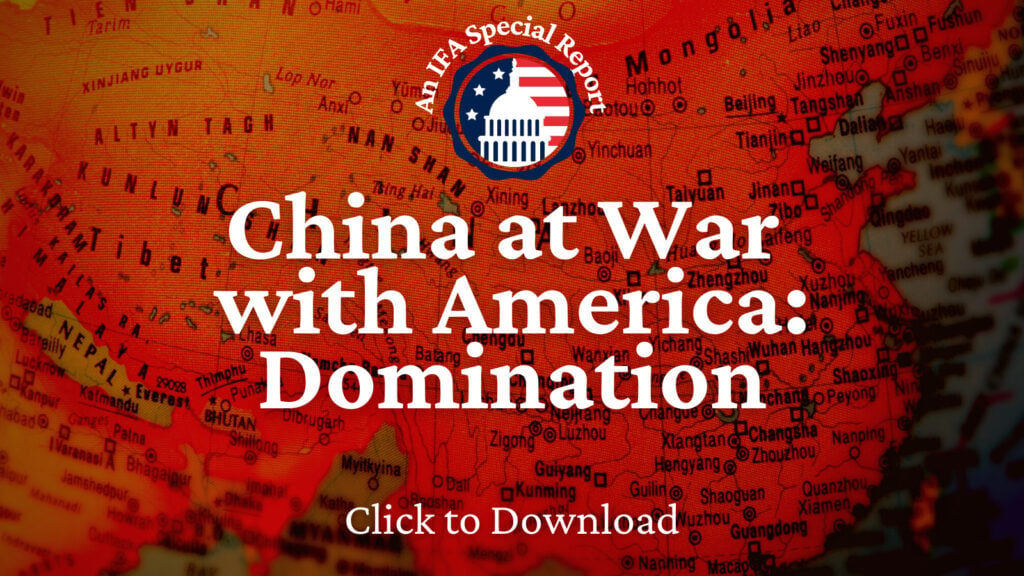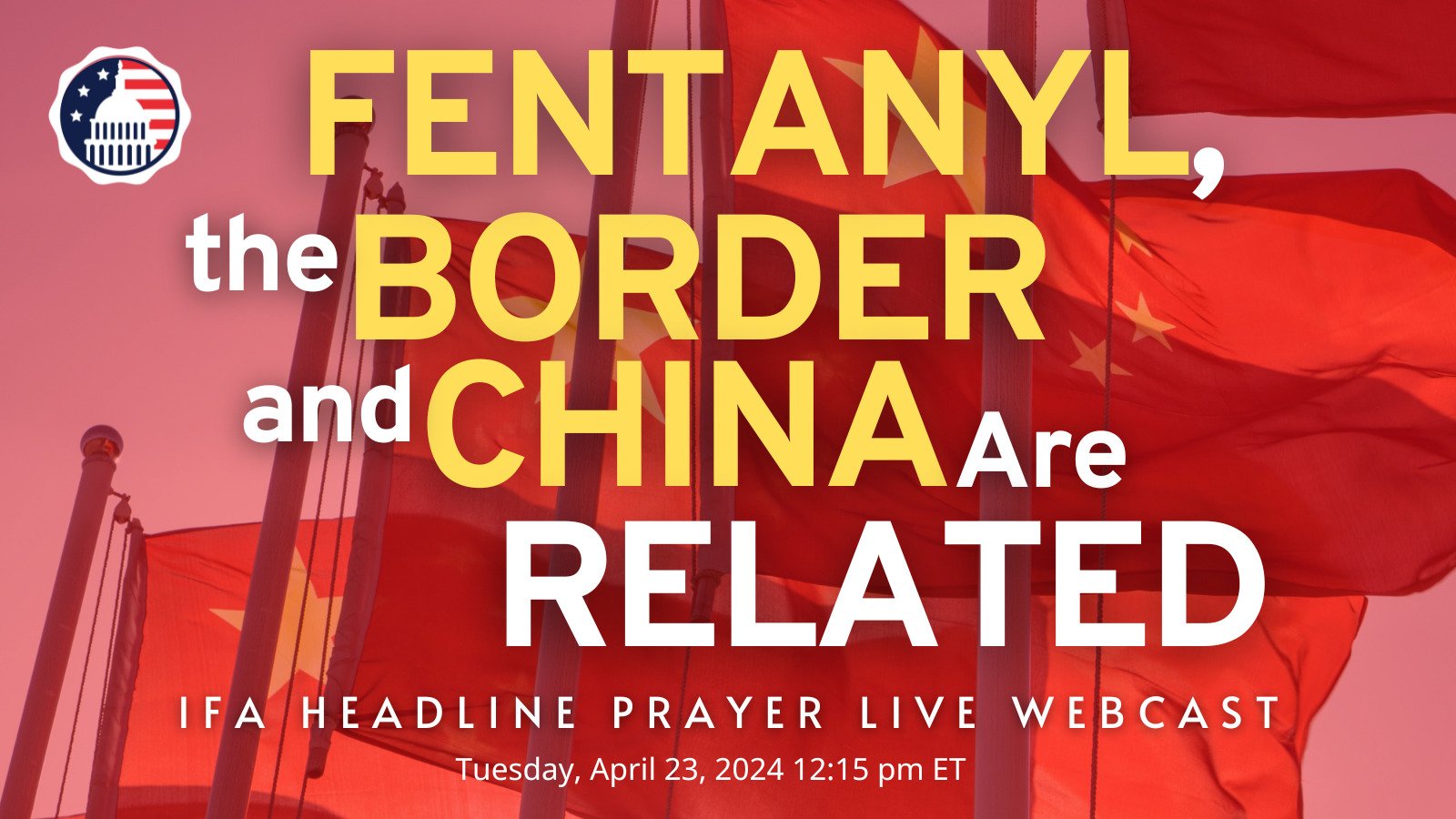
China is increasing its presence throughout the Caribbean, especially on the island of Antigua. What are their goals in what is commonly seen as America’s back yard?
From Newsweek. On a Caribbean island just 220 miles from the shore of the U.S. Virgin Islands, a black-clad Chinese security guard swept an arm at more than a thousand acres of woodland and a glittering, aqua-green marine reserve beyond. …
Do you want state prayer alerts?
This natural paradise on the island of Antigua, where officials will study the thoughts of Xi Jinping, is about to be razed for a Chinese-run special economic zone. According to documents reviewed by Newsweek it will have its own customs and immigration formalities, a shipping port and a dedicated airline and will be able to issue passports. It will establish businesses offering everything from logistics to cryptocurrencies, facial surgery to “virology.”
China, its state-owned companies and aligned private businesses are expanding rapidly in the island nation of Antigua and Barbuda and in other Caribbean countries in this strategic region long known as “America’s third border,” according to a Newsweek investigation of government and corporate documents as well as interviews with Antiguan leaders.
China’s growing regional presence is potentially the greatest external challenge to the United States in the Americas since the Soviet Union set up in Cuba in the 1960s—and the U.S. military is concerned. …
Hundreds of millions of dollars of loans and grants from China and extensive construction by Chinese state-owned companies of critical infrastructure including ports, airports and water systems are turning Antigua—once considered part of America’s “backyard”—into China’s front yard, critics say.
Antiguan Prime Minister Gaston Browne was effusive in his praise for China and its leader Xi in a Newsweek interview in St. John’s, capital of this nation of just 97,000 people and 170 square miles that is about the size of the New York City borough of Queens.
Western countries were not giving the help Antigua needed, Browne said.
“I see China, though, as a country that stands on truth, and a country that, you know, at least has some level of empathy for small states, and generally for poor and dispossessed persons globally,” said Browne. …
By backing its words with dollars China had become Antigua’s “lender of first choice,” offering 2 percent interest rates and a five-year moratorium on repayments, Browne told Newsweek. Antigua joined China’s Belt and Road infrastructure initiative in 2018, one of the first among about half a dozen Caribbean nations, making it part of a global chain of influence managed from Beijing.
Diplomats from Europe and Asia in the region suspect that China’s interests in Antigua are more than just economic. Its new embassy in St. John’s—dubbed The Fortress by Antiguans for its large size and tight security—may be a regional intelligence center alongside decades-old facilities that the U.S. says Beijing uses to spy from Cuba. …
“Traded its sovereignty”
Some Antiguans are uneasy at China’s growing influence in the country, a former British colony built partly on slavery. It still has King Charles as its head of state, although it is planning a referendum on whether to change that.
“Antigua has traded its sovereignty, I think most of us believe, to China,” said Gisele Isaac, chairwoman of the United Progressive Party, in an interview in her home outside the capital. “I think China wants a foothold in more strategic places, as a superpower.”
“I think that this administration has become, and that’s our concern, overly reliant on one partner, that partner being China,” Isaac said. …
Algernon Watts, an opposition member of parliament and a radio show host, has similar concerns.
“In the Caribbean, money is king,” he said. “China needs a firm grasp in the region, and Antigua is a more than willing partner.”
Several ministers interviewed by Newsweek declined to say how much Antigua owes China.
The Antigua Finance Ministry—Browne is also the finance minister—did not respond to an emailed request for figures. A loans tracker shows $176 million in Chinese loans through 2022. More is in the pipeline—for example Antigua will receive about $60 million from China for a water repiping project, one of the memorandums of understanding agreed in Beijing in January, Information Minister Melford Nicholas told Newsweek.
That already works out at more than $2,400 in Chinese loans per person in a country where annual gross domestic product per capita is about $19,300, according to the World Bank.
China has massively expanded its overseas footprint over the past decade through its trillion-dollar Belt and Road Initiative, sealing its presence around the world. Critics of the program accuse China of pursuing colonization by stealth through locking countries in with loans they could not get elsewhere as it rivals the United States, for example in Laos, Sri Lanka and in African nations. China counters that its investment is about “win-win” cooperation. …
Zone of influence
The new special economic zone, incorporated on January 16 in St. John’s, starkly underlines Chinese ambitions in Antigua. Known by its acronym SEZH, it takes over from a previous Chinese venture that largely failed to develop the land. The government says it expects $100 million in fresh investment. The new owners have already acquired the assets of a local company—also owned by Chinese interests—for $25 million, according to documents seen by Newsweek.
The Special Economic Zone (Antigua & Barbuda) Holdings Ltd has secured privileges that resemble those of a small state in the northeastern corner of the island adjacent to Antigua’s biggest military base—and a former U.S. base.
According to the terms of its government-issued license dated 2024, SEZH will set up an independent Zone Management Committee to provide “Customs, Immigrations and Police Services to and for the Zone.” A fishing company “ocean monitoring team” will help the Antiguan coast guard to “regulate” territorial waters. There will be no restrictions on commercial activities—permissions will be granted by the committee, not by the Antiguan government—and zero taxes and customer and asset confidentiality. …
According to documents reviewed exclusively by Newsweek, a dedicated airline for the zone called ABSEZ International Airlines Ltd. was incorporated on January 31. In addition to carrying passengers and goods and even constructing buildings, it can undertake “any other business” that enhances its profits. …
Diplomatic fortress
China’s new embassy on Antigua is already a symbol of its power. The five-acre compound—sold by the Antiguan government to China for one Eastern Caribbean dollar, or U.S. 40 cents – is so imposing that Antiguans and tourists stop to photograph its several yards-high concrete walls topped by more than 30 surveillance cameras and four layers of electrified wire. Metal wedge barriers guard two visible entrances.
Nothing else approaches this level of security in Antigua where a car can drive up to parliament unchecked.
Speaking on condition of anonymity, two regional diplomats said that they suspected the embassy was being used as an intelligence base, or a listening post.
Publicly available information about the number of people working at the embassy was “not in line” with its size: “We can reasonably think that there are hidden staff and that those people’s portfolios will be hidden from sight too,” said one. …
A key reason for China to strengthen its presence is to further isolate Taiwan, which Beijing claims. Seven of the 12 states that recognise Taiwan are in the Caribbean and Latin American region. Each has a vote in the United Nations where China seeks to build support for its policies. Chinese diplomats from the Antigua embassy regularly approach officials in the Caribbean countries that have ties with Taipei, a diplomat in a neighbouring country said.
In comparison to China’s imposing operation in Antigua, the U.S. shuttered its embassy in 1994, relocating to Barbados more than 300 miles and over an hour away by plane. The U.S. has a consular agent in Antigua—office hours are three half-days a week, according to the website. American diplomats fly in to conduct business with a laptop and a backpack.
The State Department plans to expand its diplomatic footprint in the Caribbean, it told Newsweek in an emailed statement. …
What do you think the CCP is up to? Share your thoughts and prayers below.

(Excerpt from Newsweek. Photo Credit: China News Service, CC BY 3.0,Wikimedia)

